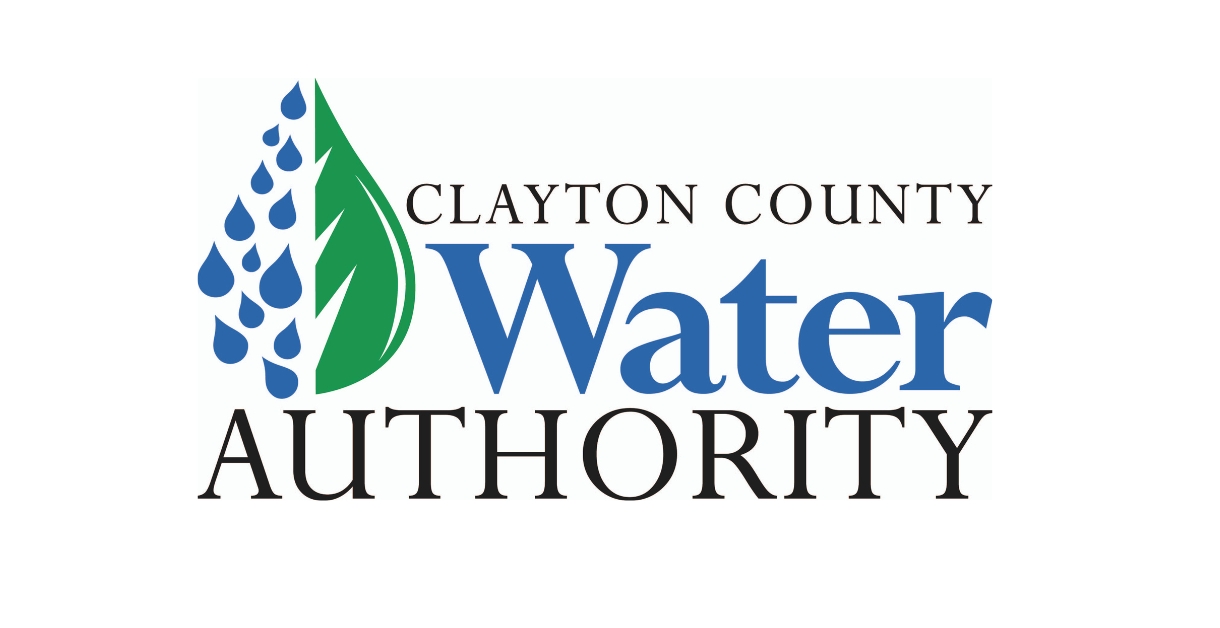CCWA Awarded $16 Million GEFA Loan for PFAS Treatment
September 15, 2023 – (Morrow, GA) – Clayton County Water Authority (CCWA) was recently awarded a $16 million Drinking Water State Revolving Fund (DWSRF) loan by the Georgia Environmental Finance Authority (GEFA) to upgrade two of its water treatment plants to remove Per- and Polyfluoroalkyl (PFAS).
The 20-year GEFA loan has an interest rate of 1.63%. CCWA is eligible for this reduced interest rate because it is a WaterFirst Community. These funds will be used to fund the design phase for treatment improvements at two of CCWA’s water treatment plants. CCWA is also anticipating receiving an additional $14 million federal grant from GEFA’s DWSRF Emerging Contaminants Grant.
PFAS are a broad group of man-made chemicals that have been used in industry and consumer products worldwide as far back as the 1940s in items such as non-stick cookware, water-repellent clothing, stain resistant fabrics and carpets, some cosmetics, some firefighting foams, and products that resist grease, water, and oil. While many of these compounds have been phased out for use in consumer goods, they do not easily break down and can remain in the environment.
According to the U.S. Environmental Protection Agency’s (EPA’s) analysis, 20% of an individual’s exposure to PFAS comes from drinking water. The remaining 80% of exposure comes from consumer goods, such as cookware, food wrappers, cosmetics, stain/water resistant clothing, and carpet and furniture treatments.
Advanced treatment technologies such as granular activated carbon (GAC) and reverse osmosis perform best at removing the small levels of PFAS compounds found in our water supply. CCWA is currently conducting a study to determine the most optimal treatment technology for our water. These technologies are costly. As a result, CCWA is seeking all financial opportunities for low interest loans and grants to help reduce the financial impact on its rate payers.
“Clayton County Water Authority is at the forefront of public health and takes seriously our responsibility to deliver clean and safe drinking water to the community,” says CCWA CEO H. Bernard Franks. “To our customers, we want you to remember Clayton County Water Authority is not the producer of these chemical compounds. However, we are tasked with the responsibility of treating and removing them, at significant cost to the Authority. We are currently meeting and exceeding all regulatory requirements for safe drinking water. In the near future, as the EPA moves forward with the new regulatory requirements, we are confident that we will continue to make the necessary improvements to maintain the trust of our customers and the community. As a lifelong resident of Clayton County, along with several family members, we continue to drink and enjoy tap water. We have always appreciated the quality water and quality services CCWA provides. We are an award-winning utility who takes great pride in caring for one of the world’s greatest and life sustaining resources- WATER.”
PFAS compounds have not previously been regulated by the EPA. However, in June 2022 the EPA released new Interim Health Advisory levels for some PFAS compounds. These Health Advisories look at lifetime PFAS exposure (e.g., 70 years) and take into account all sources of PFAS exposure.
| PFAS
Compound |
EPA
Interim Health Advisory Level |
| PFOA | .004 parts per trillion |
| PFOS | .02 parts per trillion |
| GenX | 10 parts per trillion |
| PFBS | 2,000 parts per trillion |
It’s important to note that current testing methods can only detect PFOA and PFOS down to 4 parts per trillion. However, Interim Health Advisories are significantly below the level of detection. A part per trillion is a measurement of the quantity of a substance in the air, water or soil. One part per trillion in water is equivalent to one drop of water in 20 Olympic-sized pools, which average 660,000 gallons. *Note: 1 nanogram per liter (ng/L) is equal to 1 part per trillion (ppt).
Even before the EPA’s 2022 Interim Health Advisories, CCWA was committed to addressing PFAS compounds in our drinking water. CCWA has been proactively monitoring PFAS compounds in our water system and our waterways since 2020. CCWA has also conducted a lab-scale test of technologies to determine the optimal treatment of our water. The results of this lab study and our sampling campaign will position CCWA to make the best decisions for providing quality water to our customers.
On March 14, 2023, EPA issued its Draft Rule, the proposed National Primary Drinking Water Regulation (NPDWR), limiting the acceptable level of exposure for six of these PFAS compounds including: perfluorooctanoic acid (PFOA), perfluorooctane sulfonic acid (PFOS), perfluorononanoic acid (PFNA), hexafluoropropylene oxide dimer acid (HFPO-DA, commonly known as GenX Chemicals), perfluorohexane sulfonic acid (PFHxS), and perfluorobutane sulfonic acid (PFBS). The proposed PFAS NPDWR does not require any actions until it is finalized. EPA anticipates finalizing the regulation by the end of 2023.
If the PFAS rule was in place today, the table below shows the results CCWA would be reporting to GA EPD based on quarterly samples collected Sept 2022 – June 2023. The annual average PFOA and PFOS concentrations at both of CCWA’s entry points to the distribution system (i.e., Noah’s Ark Repump Station and Hooper WPPP) exceed the 4 ng/L MCL that is included in the proposed NPDWR. The Hazard Index, which accounts for the concentrations of GenX, PFHxS, PFBS, and PFNA compared to each compound’s health-based limit, does not exceed the MCL of 1 at either entry point to the distribution system.
|
Finished Water |
PFOA
Annual Average (ng/L) |
PFOS
Annual Average (ng/L) |
Hazard Index
Annual Average |
| Proposed MCL | 4.0 | 4.0 | 1.0 |
| Noah’s Ark Repump Station | 6.1 | 7.7 | 0.67 |
| Hooper WPP | 6.1 | 5.7 | 0.23 |
Results of the samples collected in 2022 by Georgia EPD at our three Water Production Plants can be viewed on Georgia EPD’s website: PFOA and PFAS Information.


